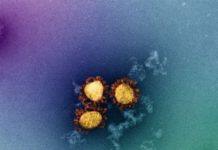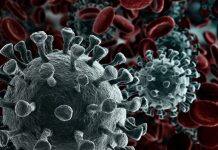Study demonstrates a novel approach to target enhancer-addicted cancers
A chromatin degrader stops transcription factors from driving cancer, which may serve as a potential treatment approach for over 90% of prostate cancers.
Child and adolescent mental health during the COVID-19 pandemic
For Children’s Mental Health Week, we highlight some of IoPPN's research into the impact of COVID-19 on child and adolescent mental health, and potential solutions to support recovery.
The low-cost widely available drug that could fight COVID-19
A widely available and affordable drug, heparin, limits lung damage when inhaled by COVID-19 patients, according to world-first findings by researchers from The Australian National University (ANU).
Kiwi scientists develop method to disinfect PPE for potential reuse in Covid-19
Kiwi scientists have developed a shipping container-based unit to disinfect N95 masks and other PPE, so it can be potentially reused and safely recycled.
UM uses public funds judiciously to nurture local talent and assists needy students during...
As the only public comprehensive university in Macao, the University of Macau (UM) has the responsibility to nurture local talent needed for the development of the city.
T cells fit to tackle Omicron, suggests new study
Research from the University of Melbourne and Hong Kong University of Science and Technology (HKUST) has revealed T cells, one of the body’s key defences against COVID-19
COVID-19 ‘has reshaped science forever’
Following in a long line of eminent scientists and engineers, Professor Cath Noakes will stand in the Royal Institution’s iconic auditorium and explain the big ideas reshaping society.
Booster vaccination strongly enhances COVID-19 immunity in care home residents and staff – study
A COVID-19 booster vaccination markedly increases immune response in residents and staff within care homes, making it vital that people living and working in these settings get their third ‘jab’, a new study reveals.
Covid-19 Vaccine Protection Wanes After Three Months, Study Suggests
The protection offered by the Oxford-Astra Zeneca Covid-19 vaccine declines after three months of receiving two doses, a study says.
Surgery rates in the U.S. rebounded quickly after initial COVID-19 shutdown
After a dramatic drop in nonessential surgery rates early in the pandemic, U.S. hospitals quickly adapted to new safety protocols, and rates returned to normal, Stanford Medicine research shows.

















































